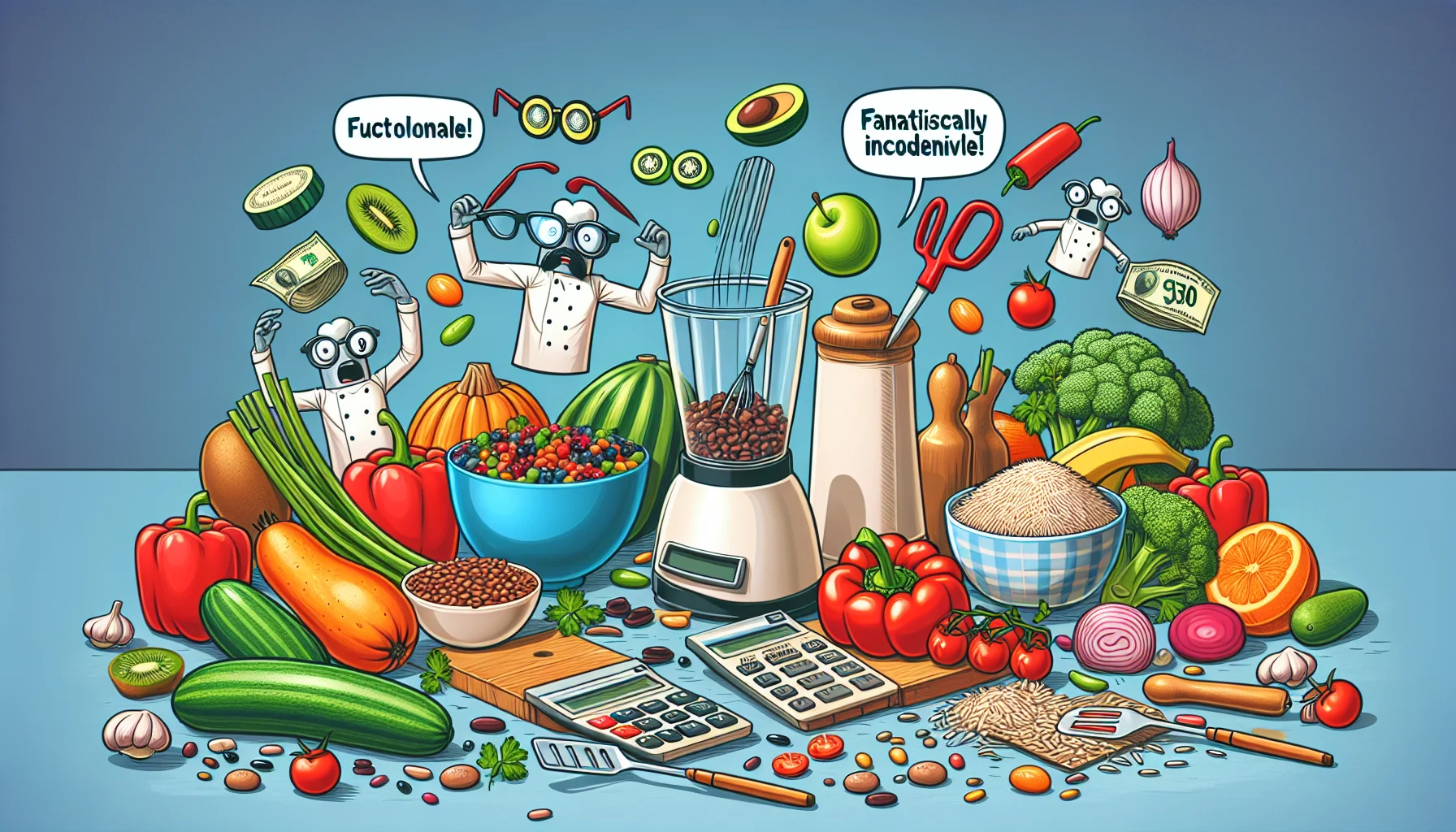Food Allergy Awareness Week Recipes Quiz
Test Your Knowledge
Question of
Celebrating Food Allergy Awareness Week with Healthy Recipes
Food Allergy Awareness Week is a crucial time dedicated to highlighting the challenges and considerations for those living with food allergies. It serves not only to educate the public about the seriousness of food allergies but also to promote inclusivity in dietary choices. The week focuses on encouraging healthy eating habits that cater to the needs of individuals with food allergies, ensuring they have access to safe, nutritious, and delicious food options. By sharing healthy recipes, we can support those affected, helping them enjoy a diverse and balanced diet without feeling restricted.
Understanding Food Allergies
Food allergies are an immune system reaction that occurs soon after eating a certain food. Even a tiny amount of the allergy-causing food can trigger signs and symptoms such as digestive problems, hives, or swollen airways. In some people, a food allergy can cause severe symptoms or even a life-threatening reaction known as anaphylaxis. Common food allergies include nuts, milk, eggs, wheat, soy, fish, and shellfish. Symptoms can range from mild to severe and may include itching, abdominal pain, vomiting, diarrhea, trouble breathing, and swelling of the lips, tongue, or throat. Awareness and understanding of food allergies are crucial for managing potential reactions and ensuring the safety and well-being of individuals with these allergies.
Top Allergy-Friendly Ingredients
- Quinoa - A fantastic gluten-free alternative that is high in protein and fiber, making it a perfect base for a variety of dishes from salads to breakfast bowls.
- Chickpeas - Versatile and packed with protein, chickpeas can be used in everything from hearty stews to crunchy snacks, catering to those with gluten and nut allergies.
- Almond milk - A great dairy-free substitute that can be used in baking, smoothies, and more. It's rich in vitamins and minerals, though those with nut allergies should avoid it.
- Coconut oil - A dairy-free and soy-free alternative to butter that can be used in baking and cooking, adding a hint of sweetness and a boost of healthy fats.
- Oats - When certified gluten-free, oats are an excellent source of fiber and can be used in a multitude of recipes from breakfast to baking.
- Flaxseeds - A great source of omega-3 fatty acids and fiber, flaxseeds can be used as an egg substitute in baking for those with egg allergies.
- Chia seeds - Similar to flaxseeds, chia seeds are a good source of omega-3s and can absorb up to 12 times their weight in liquid, making them perfect for creating egg substitutes or adding to smoothies.
- Avocado - Rich in healthy fats and versatile in use, avocado can replace butter in baking or add creaminess to sauces and dressings without dairy.
- Sweet potatoes - High in vitamins A and C, sweet potatoes are a flavorful and colorful addition to any meal, offering a nutritious alternative to common allergens.
- Maple syrup - A natural sweetener that can replace honey or sugar in recipes, perfect for those with diabetes or looking to reduce sugar intake.
Delicious and Nutritional Allergy-Friendly Breakfast Recipes
-
Quinoa Fruit Salad
Start your day with a refreshing mix of your favorite fruits like strawberries, blueberries, and mangoes tossed with cooked quinoa. Dress it with a squeeze of fresh lime juice and a drizzle of honey for a sweet, tangy flavor. This dish is gluten-free and free from the top 8 allergens, making it a safe and healthy choice.
-
Avocado Toast on Gluten-Free Bread
Smash ripe avocados on top of toasted gluten-free bread and sprinkle with salt, pepper, and red pepper flakes for a bit of heat. For an extra boost of nutrients, top with sliced tomatoes or radishes. This simple yet satisfying meal is free from dairy, eggs, and nuts, offering a tasty way to start your day without the worry.
-
Oatmeal with Coconut Milk
Cook gluten-free oats with coconut milk for a creamy and delicious breakfast option. Add in a pinch of cinnamon and top with fresh berries and a spoonful of seed butter for added flavor and nutrition. This meal avoids common allergens like dairy, soy, and nuts, making it a comforting and safe choice for anyone with food sensitivities.
Healthy Lunch Ideas for Food Allergy Awareness Week
- Quinoa Salad with Grilled Vegetables - A refreshing mix of quinoa with zucchini, bell peppers, and cherry tomatoes, lightly grilled and tossed in olive oil and lemon dressing. This dish is naturally free from common allergens and packed with nutrients.
- Allergy-Friendly Veggie Wraps - Use gluten-free tortillas to wrap up a colorful selection of shredded carrots, cucumbers, avocado, and sprouts. Serve with a side of allergy-friendly hummus for dipping. This meal is versatile and can be adjusted to avoid specific allergens.
- Chicken and Rice Soup - A comforting and simple dish made with chicken broth, diced chicken, rice, and a variety of vegetables like carrots and celery. Ensure the broth is homemade or certified allergy-safe. This soup is warming, filling, and free from top allergens when prepared with care.
Allergy-Friendly Dinner Recipes for the Whole Family
- Gluten-Free Chicken Alfredo: A creamy delight without the worry of gluten. Use gluten-free pasta, cook bite-sized chicken breast pieces until golden, and mix with a homemade Alfredo sauce made from lactose-free cream, garlic, and Parmesan cheese. Garnish with parsley for a fresh touch.
- Vegan Sweet Potato Chickpea Curry: A hearty and warming dish perfect for those chilly evenings. This curry is made with sweet potatoes, chickpeas, coconut milk, and a blend of spices, served over fragrant basmati rice. It’s completely plant-based and free from major allergens, making it a safe choice for everyone.
- Quinoa Stuffed Bell Peppers: A nutritious and colorful meal, these bell peppers are stuffed with a savory mixture of quinoa, black beans, corn, tomatoes, and spices. Top with avocado slices and a squeeze of lime juice for an extra kick. This dish is naturally gluten-free and can be made vegan by omitting cheese or using a vegan cheese alternative.
Tips for Safe and Healthy Eating During Food Allergy Awareness Week
Managing food allergies requires careful attention to detail, especially in what you eat and how you prepare it. Start by planning your meals around safe, allergy-friendly foods to avoid any accidental exposure. Always take the time to read labels thoroughly; manufacturers often update their ingredients, so it's crucial to check every time you shop. In the kitchen, preventing cross-contamination is key. Use separate utensils, cutting boards, and cookware when preparing allergen-free meals. By taking these steps, you can enjoy delicious and safe meals while managing your food allergies effectively.












